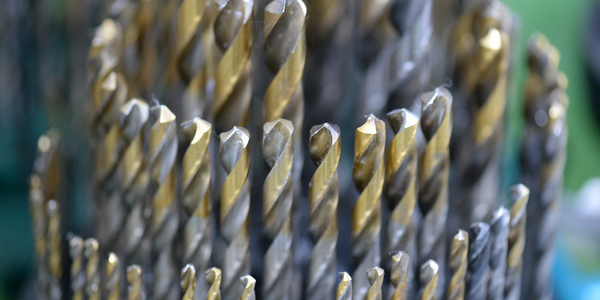Download PDF
Optimizing Tooling for Composite Drilling Using Deep Learning

Technology Category
- Analytics & Modeling - Machine Learning
Applicable Industries
- Aerospace
- Equipment & Machinery
Applicable Functions
- Maintenance
- Product Research & Development
Use Cases
- Additive Manufacturing
- Time Sensitive Networking
Services
- Testing & Certification
- Training
The Challenge
Laminated fibre-reinforced polymer (FRP) matrix composites are increasingly used in industries such as aerospace due to their excellent mechanical properties and highly-tailorable design. However, this tailorability can negatively impact costs, productivity, and sustainability during manufacture, especially in machining where FRP part-specific defects occur. Process uncertainties resulting in large, unpredictable defect generation are a common cause for prescribing overly-conservative cutting tool use limits, based on part quality criteria. Due to the wide array of tool designs and workpiece material configurations available, an application-specific approach is required to identify the most effective cutting strategies. Optimal cutting parameters can be found using an exhaustive, wide-boundary, DoE-based approach, with slow and costly testing required to identify absolute tool life limits. The challenge was to establish a novel machine learning-based method to predict tool life from start-of-life performance data, reducing experimental time and cost. The project was particularly challenging, because the original dataset was sparse, with 82% of the target data missing.
The Customer
The University of Sheffield Advanced Manufacturing Research Centre (AMRC)
About The Customer
The University of Sheffield Advanced Manufacturing Research Centre (AMRC) is a network of world-leading research and innovation centres working with companies involved in manufacturing of all sizes from around the globe. The AMRC has undertaken a number of historic CFRP and CFRP/metallic stack drilling trials in order to help industry develop economic methods of controlling drilling-induced delamination. Intellegens provides a unique machine learning solution for real-world experimental and process data problems in industrial R&D and manufacturing. The Alchemite™ deep learning software, based on a methodology that originated in the University of Cambridge, can model sparse, noisy data, where other machine learning approaches fail.
The Solution
Alchemite™, Intellegens’ novel machine learning software, leverages the unique insights of deep learning to build comprehensive models from sparse and noisy data. In this study, tooling time series data on 55 drill/composite pairs, recording 23 machining responses, including hole quality metrics and in-process measurements, was provided by the AMRC. This data was easily uploaded into the Alchemite™ Analytics software using its intuitive drag-and-drop interface. A deep learning model was trained on the tooling dataset. Despite the missing 82% of data, Alchemite™ was able to train a model with a high coefficient of determination of 0.73. This high accuracy was accomplished using the core Alchemite™ algorithm in combination with a variety of data pre-processing steps to reduce the inherent noise. These steps included data grouping and then aggregation. Although data from over 1,000 holes was available (a typical testing dataset), analysis showed that, with the right aggregation, 200 data points were sufficient to provide deep insight into a tool’s future cutting performance.
Operational Impact
Quantitative Benefit
Related Case Studies.

Case Study
Smart Water Filtration Systems
Before working with Ayla Networks, Ozner was already using cloud connectivity to identify and solve water-filtration system malfunctions as well as to monitor filter cartridges for replacements.But, in June 2015, Ozner executives talked with Ayla about how the company might further improve its water systems with IoT technology. They liked what they heard from Ayla, but the executives needed to be sure that Ayla’s Agile IoT Platform provided the security and reliability Ozner required.

Case Study
IoT enabled Fleet Management with MindSphere
In view of growing competition, Gämmerler had a strong need to remain competitive via process optimization, reliability and gentle handling of printed products, even at highest press speeds. In addition, a digitalization initiative also included developing a key differentiation via data-driven services offers.

Case Study
Predictive Maintenance for Industrial Chillers
For global leaders in the industrial chiller manufacturing, reliability of the entire production process is of the utmost importance. Chillers are refrigeration systems that produce ice water to provide cooling for a process or industrial application. One of those leaders sought a way to respond to asset performance issues, even before they occur. The intelligence to guarantee maximum reliability of cooling devices is embedded (pre-alarming). A pre-alarming phase means that the cooling device still works, but symptoms may appear, telling manufacturers that a failure is likely to occur in the near future. Chillers who are not internet connected at that moment, provide little insight in this pre-alarming phase.

Case Study
Premium Appliance Producer Innovates with Internet of Everything
Sub-Zero faced the largest product launch in the company’s history:It wanted to launch 60 new products as scheduled while simultaneously opening a new “greenfield” production facility, yet still adhering to stringent quality requirements and manage issues from new supply-chain partners. A the same time, it wanted to increase staff productivity time and collaboration while reducing travel and costs.

Case Study
Integration of PLC with IoT for Bosch Rexroth
The application arises from the need to monitor and anticipate the problems of one or more machines managed by a PLC. These problems, often resulting from the accumulation over time of small discrepancies, require, when they occur, ex post technical operations maintenance.

Case Study
Airbus Soars with Wearable Technology
Building an Airbus aircraft involves complex manufacturing processes consisting of thousands of moving parts. Speed and accuracy are critical to business and competitive advantage. Improvements in both would have high impact on Airbus’ bottom line. Airbus wanted to help operators reduce the complexity of assembling cabin seats and decrease the time required to complete this task.





